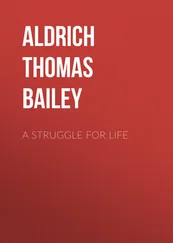Чарльз Дарвин - The Origin of Species by Means of Natural Selection Or, the Preservation of Favoured Races in the Struggle for Life
Здесь есть возможность читать онлайн «Чарльз Дарвин - The Origin of Species by Means of Natural Selection Or, the Preservation of Favoured Races in the Struggle for Life» весь текст электронной книги совершенно бесплатно (целиком полную версию без сокращений). В некоторых случаях можно слушать аудио, скачать через торрент в формате fb2 и присутствует краткое содержание. Год выпуска: 1999, Жанр: Биология, на английском языке. Описание произведения, (предисловие) а так же отзывы посетителей доступны на портале библиотеки ЛибКат.
- Название:The Origin of Species by Means of Natural Selection Or, the Preservation of Favoured Races in the Struggle for Life
- Автор:
- Жанр:
- Год:1999
- ISBN:нет данных
- Рейтинг книги:3 / 5. Голосов: 1
-
Избранное:Добавить в избранное
- Отзывы:
-
Ваша оценка:
- 60
- 1
- 2
- 3
- 4
- 5
The Origin of Species by Means of Natural Selection Or, the Preservation of Favoured Races in the Struggle for Life: краткое содержание, описание и аннотация
Предлагаем к чтению аннотацию, описание, краткое содержание или предисловие (зависит от того, что написал сам автор книги «The Origin of Species by Means of Natural Selection Or, the Preservation of Favoured Races in the Struggle for Life»). Если вы не нашли необходимую информацию о книге — напишите в комментариях, мы постараемся отыскать её.
The Origin of Species by Means of Natural Selection Or, the Preservation of Favoured Races in the Struggle for Life — читать онлайн бесплатно полную книгу (весь текст) целиком
Ниже представлен текст книги, разбитый по страницам. Система сохранения места последней прочитанной страницы, позволяет с удобством читать онлайн бесплатно книгу «The Origin of Species by Means of Natural Selection Or, the Preservation of Favoured Races in the Struggle for Life», без необходимости каждый раз заново искать на чём Вы остановились. Поставьте закладку, и сможете в любой момент перейти на страницу, на которой закончили чтение.
Интервал:
Закладка:
Any change in structure and function, which can be effected by small stages, is within the power of natural selection; so that an organ rendered, through changed habits of life, useless or injurious for one purpose, might be modified and used for another purpose. An organ might, also, be retained for one alone of its former functions. Organs, originally formed by the aid of natural selection, when rendered useless may well be variable, for their variations can no longer be checked by natural selection. All this agrees well with what we see under nature. Moreover, at whatever period of life either disuse or selection reduces an organ, and this will generally be when the being has come to maturity and to exert its full powers of action, the principle of inheritance at corresponding ages will tend to reproduce the organ in its reduced state at the same mature age, but will seldom affect it in the embryo. Thus we can understand the greater size of rudimentary organs in the embryo relatively to the adjoining parts, and their lesser relative size in the adult. If, for instance, the digit of an adult animal was used less and less during many generations, owing to some change of habits, or if an organ or gland was less and less functionally exercised, we may infer that it would become reduced in size in the adult descendants of this animal, but would retain nearly its original standard of development in the embryo.
There remains, however, this difficulty. After an organ has ceased being used, and has become in consequence much reduced, how can it be still further reduced in size until the merest vestige is left; and how can it be finally quite obliterated? It is scarcely possible that disuse can go on producing any further effect after the organ has once been rendered functionless. Some additional explanation is here requisite which I cannot give. If, for instance, it could be proved that every part of the organisation tends to vary in a greater degree towards diminution than toward augmentation of size, then we should be able to understand how an organ which has become useless would be rendered, independently of the effects of disuse, rudimentary and would at last be wholly suppressed; for the variations towards diminished size would no longer be checked by natural selection. The principle of the economy of growth, explained in a former chapter, by which the materials forming any part, if not useful to the possessor, are saved as far as is possible, will perhaps come into play in rendering a useless part rudimentary. But this principle will almost necessarily be confined to the earlier stages of the process of reduction; for we cannot suppose that a minute papilla, for instance, representing in a male flower the pistil of the female flower, and formed merely of cellular tissue, could be further reduced or absorbed for the sake of economising nutriment.
Finally, as rudimentary organs, by whatever steps they may have been degraded into their present useless condition, are the record of a former state of things, and have been retained solely through the power of inheritance—we can understand, on the genealogical view of classification, how it is that systematists, in placing organisms in their proper places in the natural system, have often found rudimentary parts as useful as, or even sometimes more useful than, parts of high physiological importance. Rudimentary organs may be compared with the letters in a word, still retained in the spelling, but become useless in the pronunciation, but which serve as a clue for its derivation. On the view of descent with modification, we may conclude that the existence of organs in a rudimentary, imperfect, and useless condition, or quite aborted, far from presenting a strange difficulty, as they assuredly do on the old doctrine of creation, might even have been anticipated in accordance with the views here explained.
SUMMARY.
In this chapter I have attempted to show that the arrangement of all organic beings throughout all time in groups under groups—that the nature of the relationships by which all living and extinct organisms are united by complex, radiating, and circuitous lines of affinities into a few grand classes—the rules followed and the difficulties encountered by naturalists in their classifications—the value set upon characters, if constant and prevalent, whether of high or of the most trifling importance, or, as with rudimentary organs of no importance—the wide opposition in value between analogical or adaptive characters, and characters of true affinity; and other such rules—all naturally follow if we admit the common parentage of allied forms, together with their modification through variation and natural selection, with the contingencies of extinction and divergence of character. In considering this view of classification, it should be borne in mind that the element of descent has been universally used in ranking together the sexes, ages, dimorphic forms, and acknowledged varieties of the same species, however much they may differ from each other in structure. If we extend the use of this element of descent—the one certainly known cause of similarity in organic beings—we shall understand what is meant by the Natural System: it is genealogical in its attempted arrangement, with the grades of acquired difference marked by the terms, varieties, species, genera, families, orders, and classes.
On this same view of descent with modification, most of the great facts in Morphology become intelligible—whether we look to the same pattern displayed by the different species of the same class in their homologous organs, to whatever purpose applied, or to the serial and lateral homologies in each individual animal and plant.
On the principle of successive slight variations, not necessarily or generally supervening at a very early period of life, and being inherited at a corresponding period, we can understand the leading facts in embryology; namely, the close resemblance in the individual embryo of the parts which are homologous, and which when matured become widely different in structure and function; and the resemblance of the homologous parts or organs in allied though distinct species, though fitted in the adult state for habits as different as is possible. Larvae are active embryos, which have become specially modified in a greater or less degree in relation to their habits of life, with their modifications inherited at a corresponding early age. On these same principles, and bearing in mind that when organs are reduced in size, either from disuse or through natural selection, it will generally be at that period of life when the being has to provide for its own wants, and bearing in mind how strong is the force of inheritance—the occurrence of rudimentary organs might even have been anticipated. The importance of embryological characters and of rudimentary organs in classification is intelligible, on the view that a natural arrangement must be genealogical.
Finally, the several classes of facts which have been considered in this chapter, seem to me to proclaim so plainly, that the innumerable species, genera and families, with which this world is peopled, are all descended, each within its own class or group, from common parents, and have all been modified in the course of descent, that I should without hesitation adopt this view, even if it were unsupported by other facts or arguments.
CHAPTER XV.
RECAPITULATION AND CONCLUSION.
Recapitulation of the objections to the theory of Natural Selection—Recapitulation of the general and special circumstances in its favour—Causes of the general belief in the immutability of species—How far the theory of Natural Selection may be extended—Effects of its adoption on the study of Natural History—Concluding remarks.
As this whole volume is one long argument, it may be convenient to the reader to have the leading facts and inferences briefly recapitulated.
Читать дальшеИнтервал:
Закладка:
Похожие книги на «The Origin of Species by Means of Natural Selection Or, the Preservation of Favoured Races in the Struggle for Life»
Представляем Вашему вниманию похожие книги на «The Origin of Species by Means of Natural Selection Or, the Preservation of Favoured Races in the Struggle for Life» списком для выбора. Мы отобрали схожую по названию и смыслу литературу в надежде предоставить читателям больше вариантов отыскать новые, интересные, ещё непрочитанные произведения.
Обсуждение, отзывы о книге «The Origin of Species by Means of Natural Selection Or, the Preservation of Favoured Races in the Struggle for Life» и просто собственные мнения читателей. Оставьте ваши комментарии, напишите, что Вы думаете о произведении, его смысле или главных героях. Укажите что конкретно понравилось, а что нет, и почему Вы так считаете.












